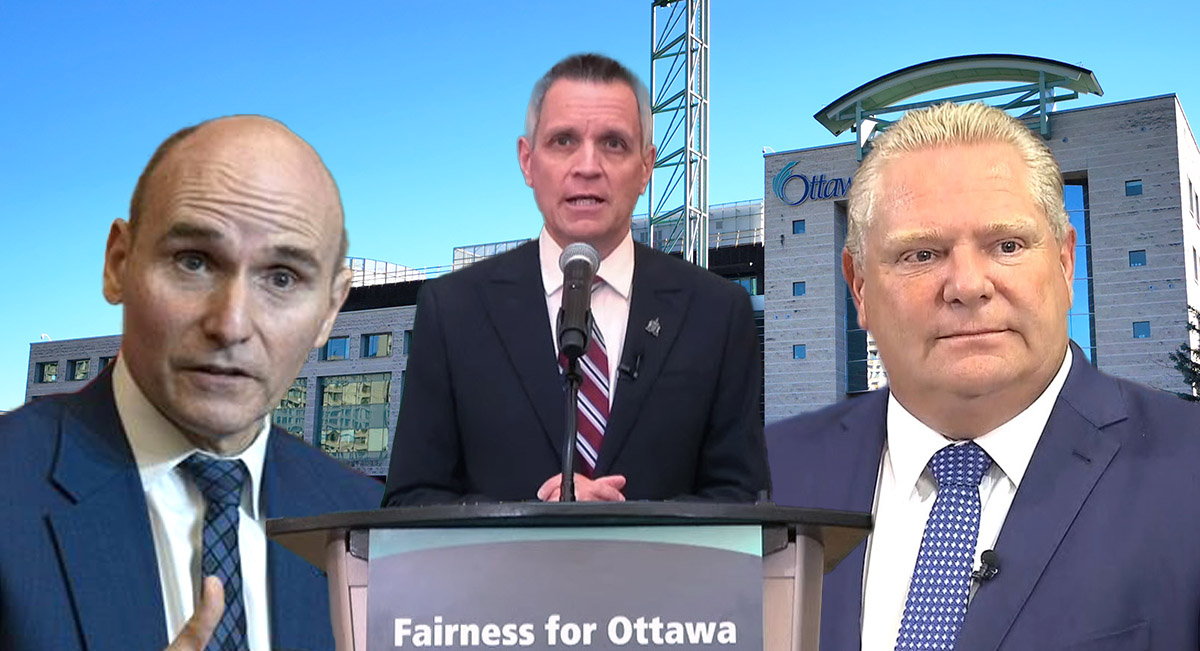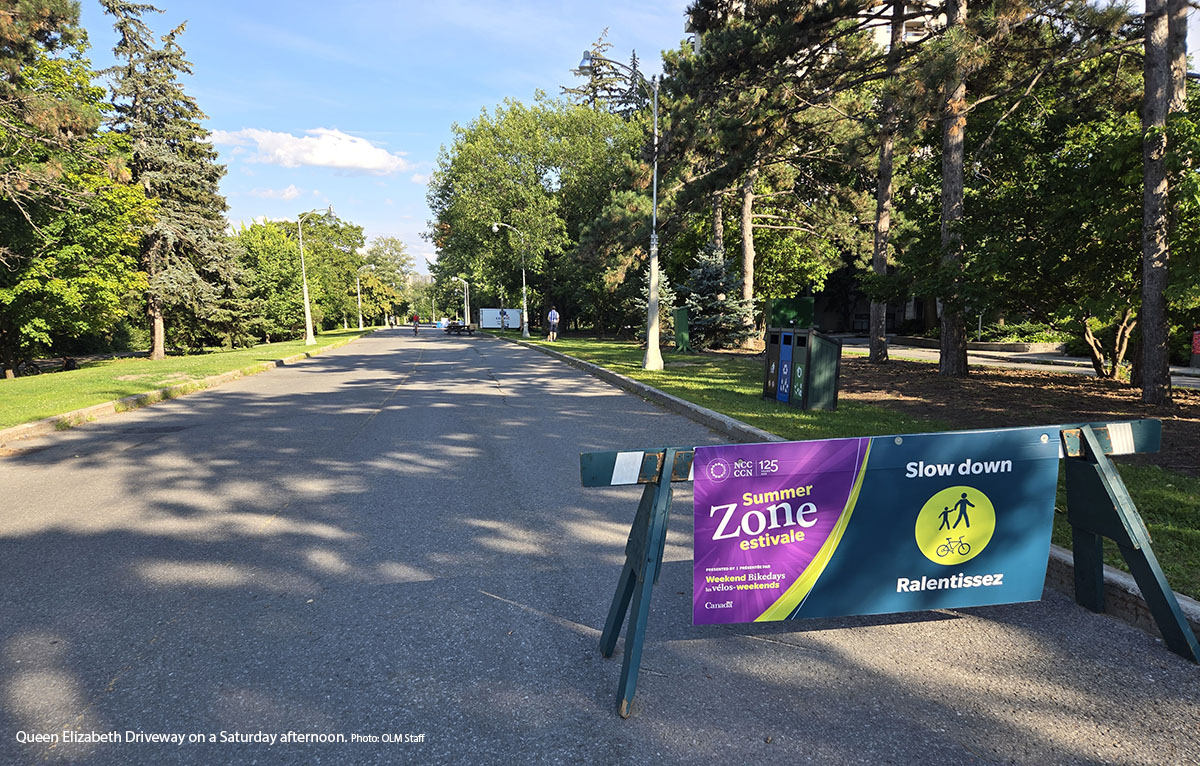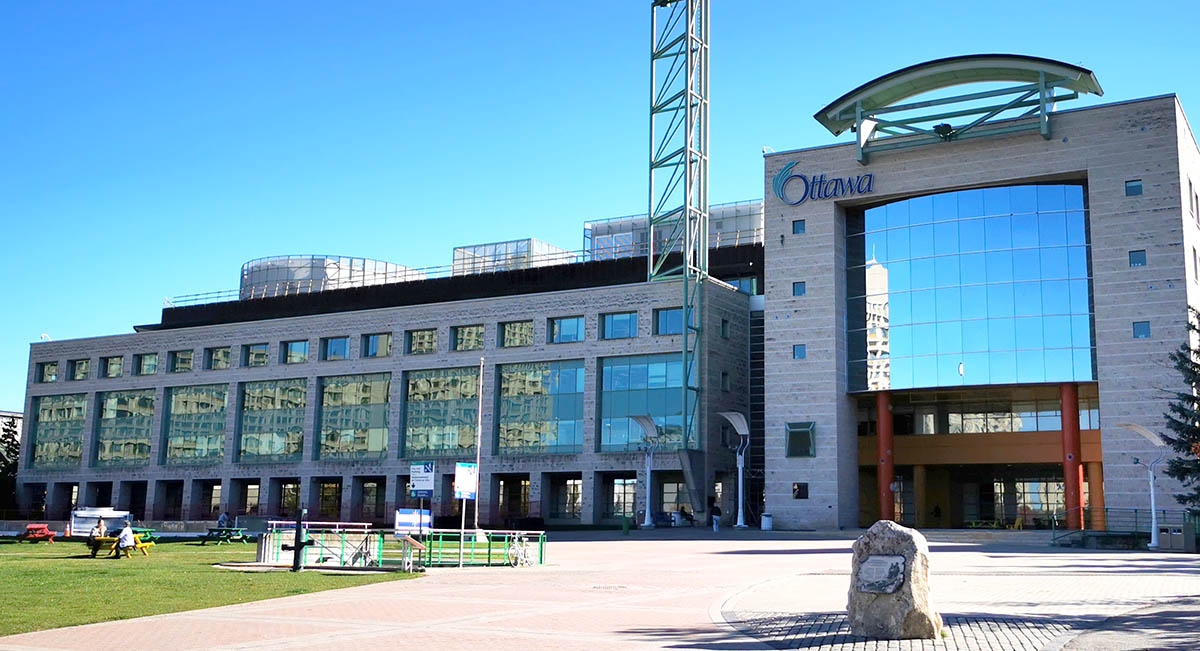
Why isn’t the Federal Government Paying its Fair Share of Municipal Taxes?
Faced with strong executive powers passed by the province, Mayor Mark Sutcliffe has yet to use them. Instead of a visionary leader-mayor, he has been a manager-consensus-building mayor. But is his latest appeal to the federal government for “Fairness for Ottawa” a sign that he is switching his approach?
Ottawa is geographically on a strange political axis, sitting as a part of Ontario, right next to Quebec, with a vast amount of federally owned property and infrastructure on both sides of the Ottawa River. Neither province owns or manages these assets; that responsibility belongs to the National Capital Commission (NCC).
In other Western democracies, national capital regions are considered important enough to be special districts like Washington D.C. or states with administrative privileges, as in Germany, where Berlin is a state and city at once. The national capital region, which extends to Gatineau, would undoubtedly benefit from such status as the territory in the 613 is massive.
However, the national capital region would never become a province because it would be an equalization leech. An already warry Canadian West would not lend support to it yet; if the city had equalization like a province because it is a unique area within the country, Ottawa would not be on the precipice of a financial crisis.
Instead, the city is left to bat with the federal government on paying its share of Payment In Lieu of Taxes (PILTS) relating to NCC-owned infrastructure, federal buildings, and, most contentiously, where federal public servants work.
As of March 2023, nearly 131,000 people in Ottawa work for the federal government. That accounts for 47.6 percent of the national total, and it continues to outgrow the pace of private-sector job growth. Since being sent home during the COVID lockdowns, those workers no longer use public transit to commute daily and are not going out for lunch or shopping downtown after the workday.
The Constitution Acts of 1867 to 1982 states that “No Lands or Property belonging to Canada or any Province shall be liable to Taxation”, but is this fair when the federal government is the largest employer for whom the city—construction and operating issues aside—designed and built a light rail transit system to move its employees to and from work?
The climate-obsessed federal government did chip in one-third of the cost to build Phase 1, but when its workers stopped going to the office, ridership plummeted along with revenues. This year, OC Transit has a $49.8 million operating deficit, and the federal government randomly, eight years ago, decided to decrease its PILT payments by $30 million annually.
Not only has the lost revenues negatively impacted municipal coffers, but the result has also been a disaster that has significantly impacted the downtown core, with businesses closed and empty shops becoming more common in Centretown and the ByWard Market.
The NCC also gets to decide how much it pays in taxes. It owns most of the buildings on Sparks and Sussex Streets yet pays far less than market value for these high-value addresses. Yet, as the mayor stated in his August 8, 2024, press conference, it charges the city grossly inflated easement fees.
To make matters worse, the NCC decided to close the Queen Elisabeth Parkway for a stretch to make it a public leisure space. There is no accountability or recourse. City Hall can not ask the unelected bureaucrats who manage this key artery in the city to reopen it.
Proponents of the Queen Elisabeth Drive closure suggest it’s enabling more pedestrian-friendly activity, but most days, it’s empty. On top of this, a path adjacent to the roadway already exists.

The increase in vehicular traffic on downtown arteries as a result of the closure has been noticeable. The Queen Elizabeth Parkway was a route from the Glebe downtown, but now Centretown— Elgin, Bank and O’Connor—is choked up by traffic more than in previous summers.
To compound the frustration of revenue shortfalls due to a lack of transit ridership and a federal agency tampering with Ottawa roadways, the local housing crisis and its at-capacity shelter system are directly the fault of federal government policy.
The city has no control over who CBSA approves as an asylum seeker, nor can they limit the mobility rights of people in the country, but asylum seekers and migrants are taking up spaces at emergency housing facilities because the federal government won’t pull the handbrake, even when the city is beyond capacity.
The city is forced to pick up the cheque for solutions, which include the unpleasant plan to start installing “sprung structures” (they’re tents, don’t kid yourself) to house people who the city cannot turn away but the federal government can.

Like other cities in the country, Ottawa should be a city run by its mayor and council, not the NCC and the federal public service. Cutting off main revenue streams, shutting downtown arteries, and importing people into the city without the consultation of local public services who will have to bear the brunt of such choices is unneighbourly and fundamentally anti-democratic.
Mark Sutcliffe is the elected mayor and top city authority. The federal government—like the city-wide companies—should pay its fair share to ensure that the nation’s capital functions as a G7 capital should. As the largest employer in the area, it has a responsibility to stop treating the legitimately elected municipal government as a sideshow.
Mayor Suttcliffe began his mandate with the new strong mayor powers imposed by the province. Suppose the federal government doesn’t pay PILTs that are in line with inflation. In that case, the mayor should take executive action to charge the federal government property taxes for every building and all lands it owns in Ottawa.
With the Strong Mayors, Building Homes Act (2022), Sutcliffe has the power to draft city budgets, a task usually done by a Council Committee. He can adjust taxation and add a clause that the feds must pay to play. When the federal government inevitably cites the Charter, Sutcliffe can write Doug Ford, the gifter of the Strong Mayor Powers, requesting the use of the Notwithstanding Clause to circumvent the Charter and force the hand of the feds. It will send a strong message to the government of Canada that the City of Ottawa is not a pushover and it means business in its request for its fair share.








